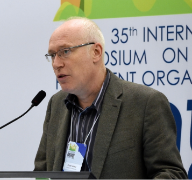-
Courses

Courses
Choosing a course is one of the most important decisions you'll ever make! View our courses and see what our students and lecturers have to say about the courses you are interested in at the links below.
-
University Life

University Life
Each year more than 4,000 choose University of Galway as their University of choice. Find out what life at University of Galway is all about here.
-
About University of Galway

About University of Galway
Since 1845, University of Galway has been sharing the highest quality teaching and research with Ireland and the world. Find out what makes our University so special – from our distinguished history to the latest news and campus developments.
-
Colleges & Schools

Colleges & Schools
University of Galway has earned international recognition as a research-led university with a commitment to top quality teaching across a range of key areas of expertise.
-
Research & Innovation

Research & Innovation
University of Galway’s vibrant research community take on some of the most pressing challenges of our times.
-
Business & Industry

Guiding Breakthrough Research at University of Galway
We explore and facilitate commercial opportunities for the research community at University of Galway, as well as facilitating industry partnership.
-
Alumni & Friends

Alumni & Friends
There are 128,000 University of Galway alumni worldwide. Stay connected to your alumni community! Join our social networks and update your details online.
-
Community Engagement

Community Engagement
At University of Galway, we believe that the best learning takes place when you apply what you learn in a real world context. That's why many of our courses include work placements or community projects.
Project Team
TERRAChem Project Team
The TERRAChem Project team includes Dr Maries Coggins, Dr Martin Sharkey, and Prof. Mark Healy at the University of Galway, as well as Prof. Stuart Harrad and Dr William Stubbings at the University of Birmingham.
Dr Marie Coggins
Lecturer Exposure Science
Department of Physics
Arts/Science Building
NUI Galway
T: (091) 495056
E: Marie.Coggins@nuigalway.ie
Marie leads the NUI Galway Exposure Science research team, where her research focuses on characterizing the magnitude of human exposure and exposure pathways for a range of pollutants across multiple microenvironments as well as evaluating the impact of human exposure or exposure interventions on health. Her research continues to inform the development of both Environmental and Energy policy.
Marie was the NUIG led for two further EPA research projects, the ELEVATE project and the SAFER project, both of which have involved investigating persistent organic pollutants in an Irish context; the characterization of human exposure (ELEVATE) and environmental contamination (SAFER). Marie is currently Programme Director of the professional accredited postgraduate and undergraduate programmes in Occupational and Environmental Health & Safety.
Dr Martin Sharkey

Post-Doctoral Researcher
Department of Physics
Arts/Science Building
NUI Galway
T: (091) 495056
E: martin.sharkey@nuigalway.ie
Dr Martin Sharkey is the post-doctoral researcher on the TERRAChem project, involved in the management and communications activities of the project as well as leading the fieldwork and sampling campaign being conducted in Ireland. Prior post-doctoral work on other EPA research projects such as SAFER, FUEL, and WAFER have afforded him extensive knowledge of persistent organic pollutants, chemicals of emerging concern, waste management and recycling regarding hazardous wastes, and environmental monitoring of various matrices for hazardous chemicals. Sharkey has 11 high impact peer-reviewed publications (3 as first author) with over 250 citations thus far and google scholar h- and i-10 indices of 7.
Prof Mark Healy

Personal Professor
Room ENG-1038
Civil Engineering
College of Engineering and Informatics
University of Galway
T: Ext. 5364
E: mark.healy@nuigalway.ie
Mark G. Healy attended the National University of Ireland, Galway (NUI Galway), where he obtained his BE degree. He obtained a MEngSc degree, through research, in the Department of Engineering Hydrology, NUI Galway and was awarded a PhD degree in Civil Engineering from the Department of Civil Engineering, NUI Galway. He worked as a Project Engineer for one year, before returning to lecture in the Department of Civil Engineering, NUI Galway, where he is currently a Personal (Full) Professor. In 2006, he became a Chartered Engineer and in 2011, he was made Fellow of Engineers Ireland. He was nominated for the President’s Awards for Teaching Excellence in three years (2011, 2012 and 2013), and was awarded the President’s Award for Research(Research Supervisor Award Category) in 2014. In 2019, he was awarded the Degree of Doctor of Engineering (DEng), based on published works.
Prof Stuart Harrad
 Professor Stuart Harrad from the University of Birmingham is a world-leading expert on the environmental fate and behaviour of persistent organic pollutants, with a particular focus on BFRs and PFAS, and will lead the chemical analysis components of the TERRACHEM project. He has coordinated three further EPA research projects in Ireland – the WAFER, FUEL, ELEVATE, and SAFER projects dealing with various aspects of POPs in the Irish environment – and has led three EU-funded Marie Curie Initial Training Network Projects – A-TEAM, ELUTE, and INFLAME – which focus on training new generations of scientists to tackle the hazards posed by persistent organic pollutants in the environment.
Professor Stuart Harrad from the University of Birmingham is a world-leading expert on the environmental fate and behaviour of persistent organic pollutants, with a particular focus on BFRs and PFAS, and will lead the chemical analysis components of the TERRACHEM project. He has coordinated three further EPA research projects in Ireland – the WAFER, FUEL, ELEVATE, and SAFER projects dealing with various aspects of POPs in the Irish environment – and has led three EU-funded Marie Curie Initial Training Network Projects – A-TEAM, ELUTE, and INFLAME – which focus on training new generations of scientists to tackle the hazards posed by persistent organic pollutants in the environment.
Dr William Stubbings
Dr Will Stubbings is a postdoctoral researcher with a high level of experience in environmental and analytical chemistry, specifically related to persistent organic pollutants and endocrine disrupting chemicals. Stubbings has over a decade of experience in both the USA and the UK in developing and applying various mass spectrometric techniques to measuring concentrations of halogenated flame retardants (HFRs) and PFAS in a wide variety of matrices. Prior to his current project, Stubbings worked on a UK-government-funded project at the University of Birmingham aimed to develop and validate the UK standard method for the determination of C4-C13 PFCAs and PFSAs to align with the EU Drinking Water Directive for PFAS in drinking water. Preceding this, he collaborated with a major plastics recycler (Axion polymers) on a project evaluating approaches designed to minimise the presence of brominated flame retardants in recycled plastics, as well as their emissions from recycled products. Previous to this, Stubbings completed his PhD in the Harrad group at the University of Birmingham where he studied the presence and fate of HFRs in landfill, before undertaking postdoctoral research within the Hites group at Indiana University, USA on a variety of projects, including: studies of HFR exposure to both humans and wildlife, interlaboratory proficiency testing, novel method development for sample collection, analytical laboratory work and instrumental methods. Stubbings has 27 high-impact peer-reviewed publications (including 9 as corresponding author; 11 as first author) receiving over 500 citations. With a current Google Scholar h-index of 13 and ISI h-index score of 15.















